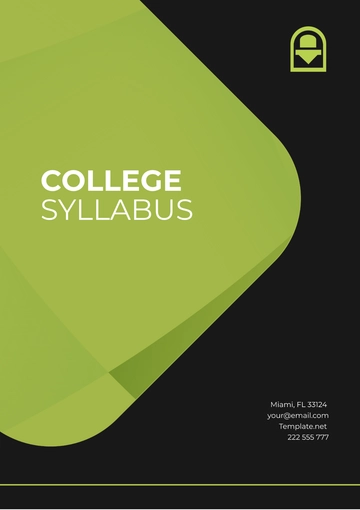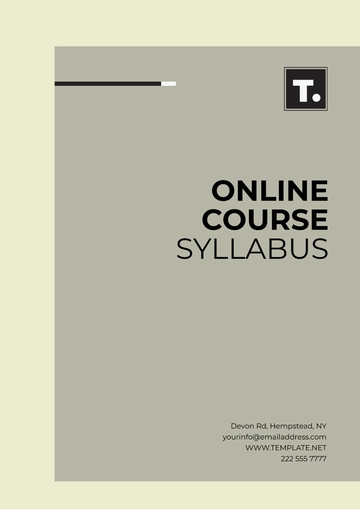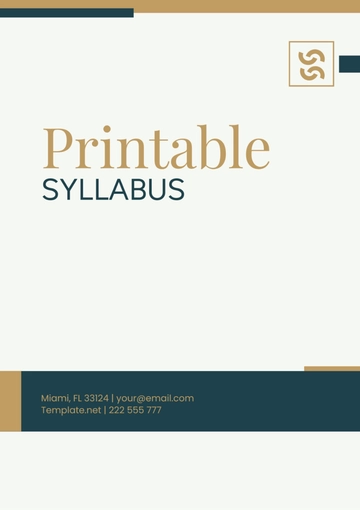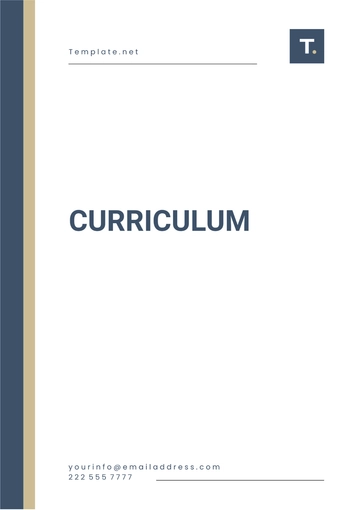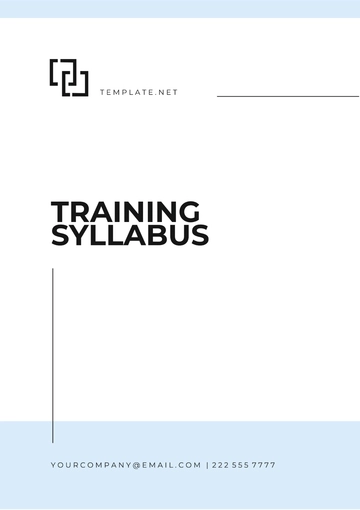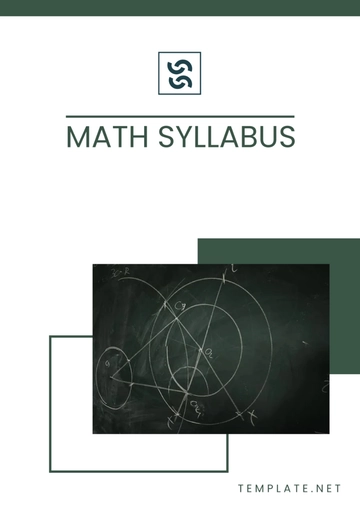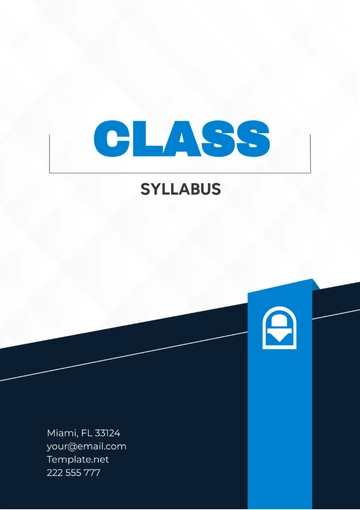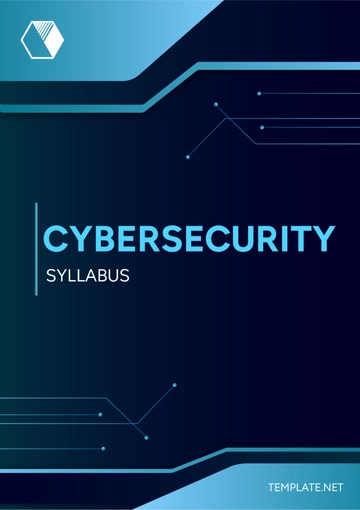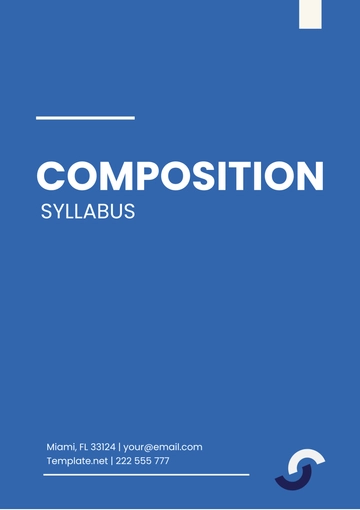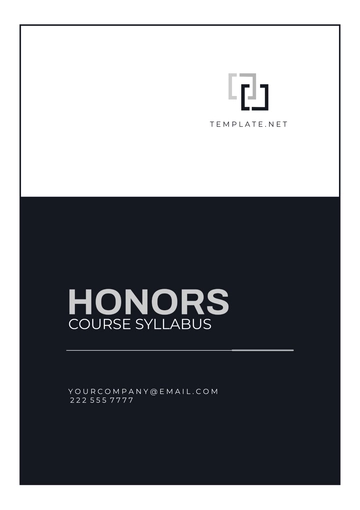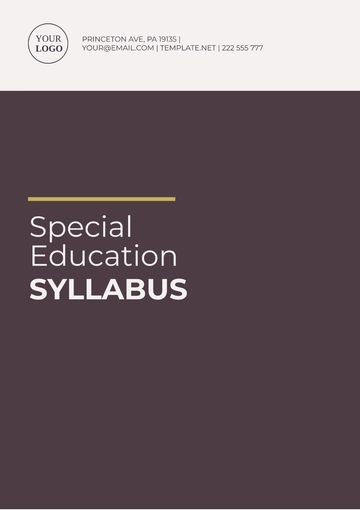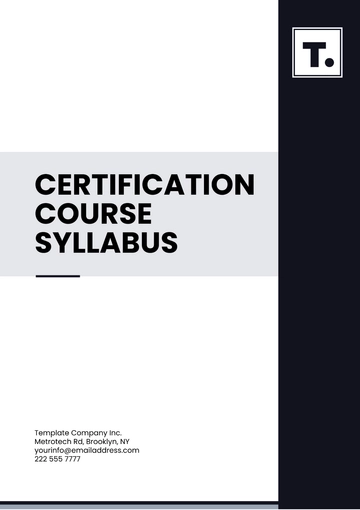Free Legal Studies Syllabus

Legal Studies Syllabus Course
Course Title: | [COURSE TITLE] |
Credits: | [CREDITS] |
Instructor: | [INSTRUCTOR] |
Schedule: | [SCHEDULE] |
Location: | [LOCATION] |
Textbook: | [TEXTBOOK] |
Description: | [DESCRIPTION] |
Assessments: | [ASSESSMENTS] |
Grading: | [GRADING] |
Office Hours: | [OFFICE HOURS] |
1.Course Description:
This course aims to provide students with an understanding of the fundamental principles governing the legal system, its applications, and its impact within society. We will embark on a journey of discovery, traversing various facets of the law such as criminal law, business law, and international law, among others.
2. Instructor Information:
Instructor: [YOUR NAME]
Organization: [YOUR COMPANY NAME]
Email: [YOUR EMAIL]
3. Learning Objectives:
Develop a comprehensive understanding of the broad spectrum of legal principles.
Gain knowledge of the different structures and systems of law enforcement.
Understand and apply legal theories to real-world scenarios.
Enhance critical thinking skills in legal argumentation.
Establish a strong groundwork for a potential career in law or related fields.
4. Course Schedule:
Week | Topic | Readings |
|---|---|---|
1 | Introduction to Legal Studies |
|
2 | Constitutional Law |
|
3 | Criminal Law |
|
5. Required Reading and Materials:
American Legal Systems: A Resource and Reference Guide (2019) 2nd Edition by Toni Jaeger-Fine
Online LexisNexis Account for Legal Research
The U.S. Constitution: A Reader by Hillsdale College Politics Faculty
Law 101: Everything You Need to Know About American Law, Fourth Edition by Jay Feinman
The Supreme Court A to Z by Kenneth Jost
6. Assignments and Assessments:
Weekly Reading Assignments: To ensure understanding of the weekly topics, students must complete assigned readings before the class.
Midterm Paper: A detailed analysis of a selected legal case emphasizing its relevance to the course materials.
Class Participation: Attendance and active participation in class discussions are crucial and will be assessed.
Final Exam: A combination of multiple-choice, short answers, and essay questions covering the entirety of the course.
Group Project: Students will be tasked with presenting a mock trial of a significant legal case, demonstrating their understanding of legal principles.
7. Course Policy:
Attendance: Regular attendance is expected and integral to your success in this course.
Assignments: Late submissions will not be accepted unless due to documented emergencies.
Academic Integrity: All work submitted must be originally completed by the student. Any form of plagiarism will result in severe penalties.
Participation: Students are expected to actively participate in class discussions and demonstrate respect towards differing perspectives.
Communication: All concerns about the course or assignments should be addressed to the instructor via official communication channels.
8. Grading Policy:
Grades will be allocated based on Class Participation (20%), Weekly Assignments (20%), Midterm Paper (25%), Group Project (15%), and Final Exam (20%).
9. Disclaimer:
Although every effort is made to ensure the accuracy of the syllabus, all students are advised to consult with the instructor for the most up-to-date course information. Course schedule and content may be adjusted as needed. It is the responsibility of the student to keep informed of any changes made during the course.
- 100% Customizable, free editor
- Access 1 Million+ Templates, photo’s & graphics
- Download or share as a template
- Click and replace photos, graphics, text, backgrounds
- Resize, crop, AI write & more
- Access advanced editor
Discover the ultimate solution for crafting your Legal Studies syllabus effortlessly with Template.net's editable and customizable template. Seamlessly tailor your curriculum to meet your students' needs with ease. With compatibility in our Ai Editor Tool, streamline your editing process for a hassle-free experience. Unlock your syllabus potential today!


